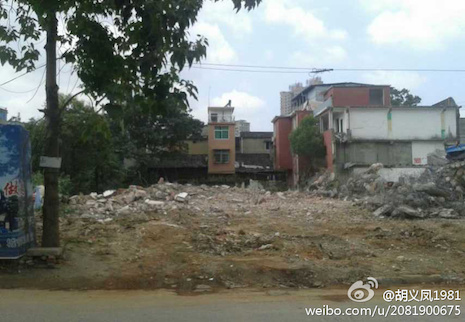Christian persecution in China may be slowing down, says monitoring group

An international Christian organization has expressed hope that the Chinese government's campaign against churches and crosses appears to be slowing down.
Building a comprehensive timeline that documented the cases of church demolitions in Zhejiang province, Christian Solidarity Worldwide said it noticed a pattern which fueled suspicions that the campaign intended to curb the growing faith.
"Although the Chinese government claims that the church demolitions have nothing to do with religion, the scope of the demolitions indicated by the timeline tells a different story," said CSW chief executive Mervyn Thomas in a statement on Feb. 11
At least 400 crosses from churches in Zhejiang province have been removed, while 35 churches were either totally or partially destroyed, according to the timeline.
The bulk of the incidents against Christian places of worship peaked between April and July 2014. In February last year, Communist Party leaders warned Zhejiang officials of the increasing rise of Christians in parts of the province, like Wenzhou, known as China's "Jerusalem."
During the three-month period, State authorities destroyed more than 230 churches in the guise of enforcing building code provisions. The number includes churches whose crosses were removed and buildings partially damaged.
Some 100 people were arrested, detained, or issued summonses in the course of the persecution, according to CSW, while 35 people were hurt trying to protect the churches from the police.
Authorities maintained the government-initiated campaign targeted structures that were built contrary to the provisions of the country's building code.
Observers believe that the campaign sought to pressure Christian groups and churches to register with the government, which tightly regulates worship in the communist nation. Only those religious groups that are registered with the government can practice their faith freely.
Thomas urged China's leaders to engage different religious heads in a dialogue to thresh out issues that concern authorities.
"We renew our call for the Chinese authorities to make consistent efforts to enter into dialogue with religious leaders, with a view to promoting mutual trust and positive relations; to provide clear instructions about the process of applying for permission to build a religious structure; and to establish a complaints mechanism for religious buildings which have been refused permission to build," said Thomas.